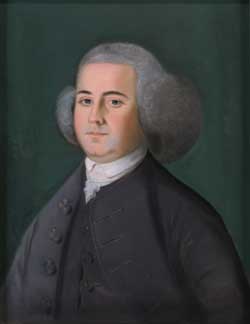“The same Spirit spreads like a Contagion”
I’m returning to the second Boston Tea Party and the other events of March 1774. And who better to ease us into that mindset than John Adams?
On 12 March he filled his diary with this essay:
Gov. Hutchinson would have protested that he was describing the colonies’ situation, too distant to participate in Parliament, and not prescribing how the British government should treat them. (Oliver, in contrast, had indeed suggested changes to the Massachusetts charter.)
Nevertheless, in supposing that Hutchinson and Oliver might be sincere in their misguided political beliefs, Adams came as close as he ever did to granting them some respect. Even as he compared the two men to Jacobites and assassins.
Adams also hopefully foresaw the popular resistance to that law stemming from “a Republican Spirit,” though he wasn’t yet ready to espouse a republic without a monarchy. And like any good son of Massachusetts, he was sure other provinces, even the mother country, would follow its example.
TOMORROW: Tales of the second Boston Tea Party?
On 12 March he filled his diary with this essay:
There has been and is a Party in the Nation, a very small one indeed, who have pretended to be conscienciously perswaded, that the Pretender has a Right to the Throne. Their Principles of Loyalty, hereditary Right, and passive obedience have led them to this judgment, and Opinion.—And as long as they keep these Opinions to themselves, there is no Remedy against them.Adams there quoted the most notorious phrase from the ”Hutchinson letters” published the year before.
But as soon as they express these opinions publicly, and endeavour to make Proselytes, especially if they take any steps to introduce the Pretender, they become offenders, and must suffer the Punishment due to their Crimes.
Private judgment might be alledged in Excuse for many Crimes—a poor Enthusiast [may?] bring himself to believe it lawfull for him to steal from his rich Neighbour, to supply his Necessities, but the Law will not allow of this Plea. The Man must be punished for his Theft.
Ravaillac and Felton probably thought, they were doing their Duty, and nothing more, when they were committing their vile assassinations But the Liberty of private Conscience, did not exempt them from the most dreadfull Punishment that civil Authority can inflict or human Nature endure.
[Thomas] Hutchinson and [Andrew] Oliver might be brought by their interested Views and Motives, sincerely to think that an Alteration in the Constitution of this Province, and an “Abridgment of what are called English Liberties,[”] would be for the Good of the Province, of America, and of the Nation. In this they deceived themselves, and became the Bubbles of their own Avarice and Ambition.
Gov. Hutchinson would have protested that he was describing the colonies’ situation, too distant to participate in Parliament, and not prescribing how the British government should treat them. (Oliver, in contrast, had indeed suggested changes to the Massachusetts charter.)
Nevertheless, in supposing that Hutchinson and Oliver might be sincere in their misguided political beliefs, Adams came as close as he ever did to granting them some respect. Even as he compared the two men to Jacobites and assassins.
The rest of the World are not thus deceived. They see clearly, that such Innovations will be the Ruin not only of the Colonies, but of the Empire, and therefore think that Examples ought to be made of these great offenders, in Terrorem.This thinking shows how Adams and other Massachusetts politicians reacted to the Massachusetts Government Act, passed by Parliament later in 1774. It was a “we told you so” moment. No matter that the new law was a response to the Tea Party—both of them—and other unrest the Boston Whigs had promoted over the years.
The Enmity of Govr. [Francis] Bernard, Hutchinson and Oliver, and others to the Constitution of this Province is owing to its being an Obstacle to their Views and Designs of Raising a Revenue by Parliamentary Authority, and making their own Fortunes out of it.
The Constitution of this Province, has enabled the People to resist their Projects, so effectually, that they see they shall never carry them into Execution, while it exists. Their Malice has therefore been directed against it, and their Utmost Efforts been employed to destroy it.
There is so much of a Republican Spirit, among the People, which has been nourished and cherished by their Form of Government, that they never would submit to Tyrants or oppressive Projects.
The same Spirit spreads like a Contagion, into all the other Colonies, into Ireland, and into Great Britain too, from this single Province, of Mass. Bay, that no Pains are too great to be taken, no Hazards too great to be run, for the Destruction of our Charter.
Adams also hopefully foresaw the popular resistance to that law stemming from “a Republican Spirit,” though he wasn’t yet ready to espouse a republic without a monarchy. And like any good son of Massachusetts, he was sure other provinces, even the mother country, would follow its example.
TOMORROW: Tales of the second Boston Tea Party?


No comments:
Post a Comment